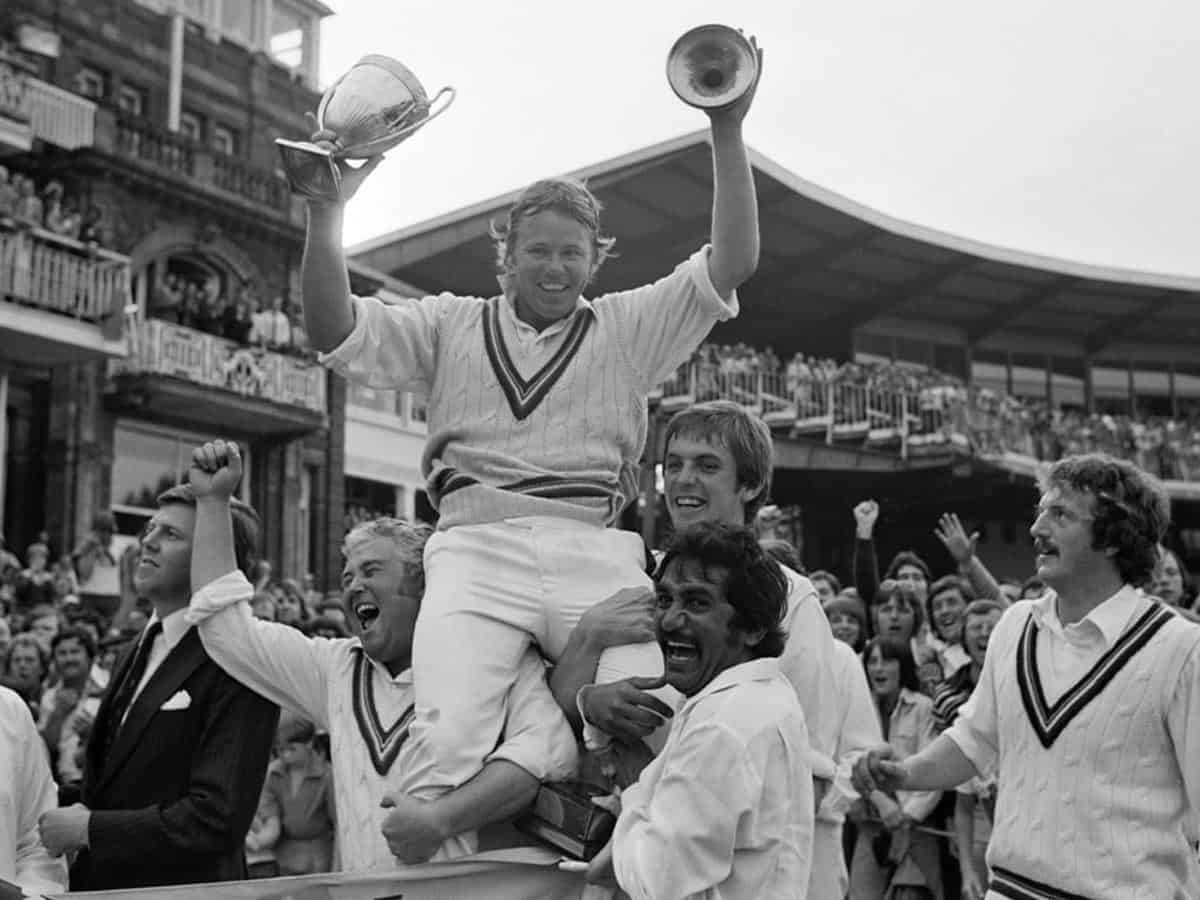
Whenever a person of great accomplishment and potential passes away it is a cause of sorrow to the people who saw him displaying his or her talent. The recent death of South Africa’s legendary cricketer Mike Procter left a void in the cricket world that may never be filled.
He belonged to a generation of great South African cricketers who lost their careers when their country was banned from international sport for practicing apartheid policy. They are often called the lost generation of South African players and Procter was one of them.
Cricketers suffered due to Govt fault
Due to no fault of theirs, Procter and his teammates such as Barry Richards, Colin Bland, Graeme Pollock, Peter Pollock, Ali Bacher and many more excellent players failed to fulfill their potential when their country was banned from international sport. The blame lay with the racist government of South Africa but the men who suffered were the players of cricket, rugby, golf, tennis and athletics.
The ban was absolutely necessary because it helped to topple the racist regime and introduce racial equality but in the process sportsmen were hurt. It was one of those tragedies of life wherein a strong medicine has to be administered to a patient even though it may have several side effects.
Talented players were deprived of the opportunity to showcase their skills on the global stage. This isolation not only hindered their professional development but also limited their exposure to top-level competition. The absence of international competition meant that South African cricketers missed out on lucrative contracts and endorsements.
Players felt frustrated
It created a sense of frustration and disillusionment among South African cricketers, who were compelled to look on ruefully as their counterparts from other countries enjoyed success and fame on the global stage. This sense of loss and sorrow gave rise to a desire among the players to strive for the reinstatement of South Africa in the international cricket arena.
But the movement took a long time to succeed and it took place only after South Africa had rejected the apartheid policy and instituted racial integration under the leadership of Nelson Mandela. In the meantime players like Procter fell victims to the previous government’s wrong policies.
Procter had no regrets
Procter accepted his suffering and his sorrowful fate without any regrets. “What is a Test career when compared to the suffering of 40 million non-White people ? Many people lost much more than we players did and if by missing out on a Test cricket career we players played a part in changing an unjust system, then I am OK with it,” he said once in an interview.
Mike Procter, Barry Richards, Peter Pollock and Dennis Lindsay once staged a protest against the apartheid policy by walking out of a match when the selectors picked only white players and rejected the justified claims of black players to be selected in the team. They then issued a statement to the media stating their support for selection based on merit rather than on skin colour.
Procter’s career
Before the ban was implemented, Procter played seven Test matches in which he took 41 wickets (best being 6 for 73) and scored a total of 226 runs with the bat. One saw only a brief glimpse of his talent on the international scene.
But it was in county cricket matches in England where he flourished and it was soon confirmed that he was as good an all rounder as the best ever seen in the history of the game. He became so successful that the media sometimes referred to his county team Gloucestershire as “Proctershire” in his honour.
Following his retirement from playing, Procter was appointed as a match referee by the ICC for officiating cricket matches but his tenure was marked by several controversies. In all, he served as Match Referee in 47 Tests, 162 ODIs and 15 T20Is.
Procter was admitted to ICU on 12th February 2024 and despite intensive care his health worsened and he passed away on 17th February 2024, at the age of 77. Geoff Allardice, CEO of the ICC said that Procter was one of the most admired cricketers of his time. His death has left the cricket world much poorer.
